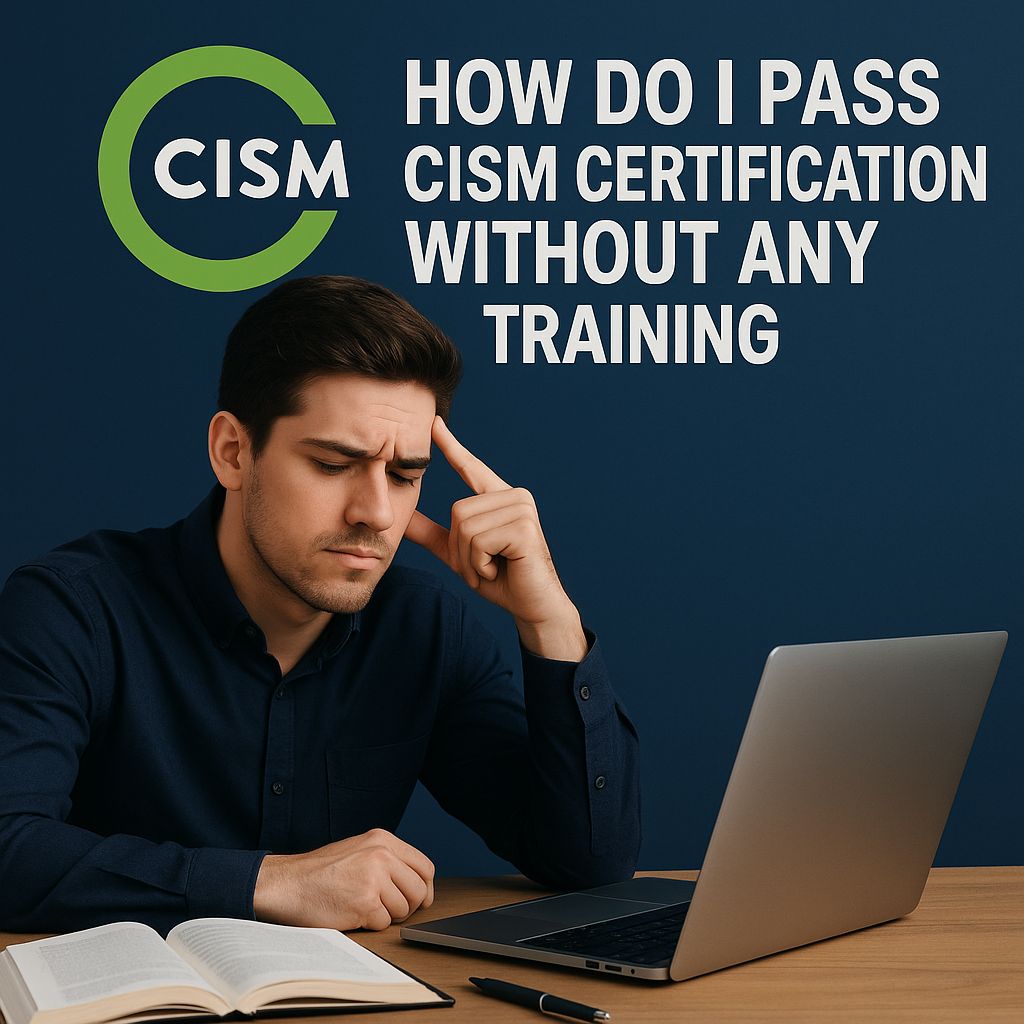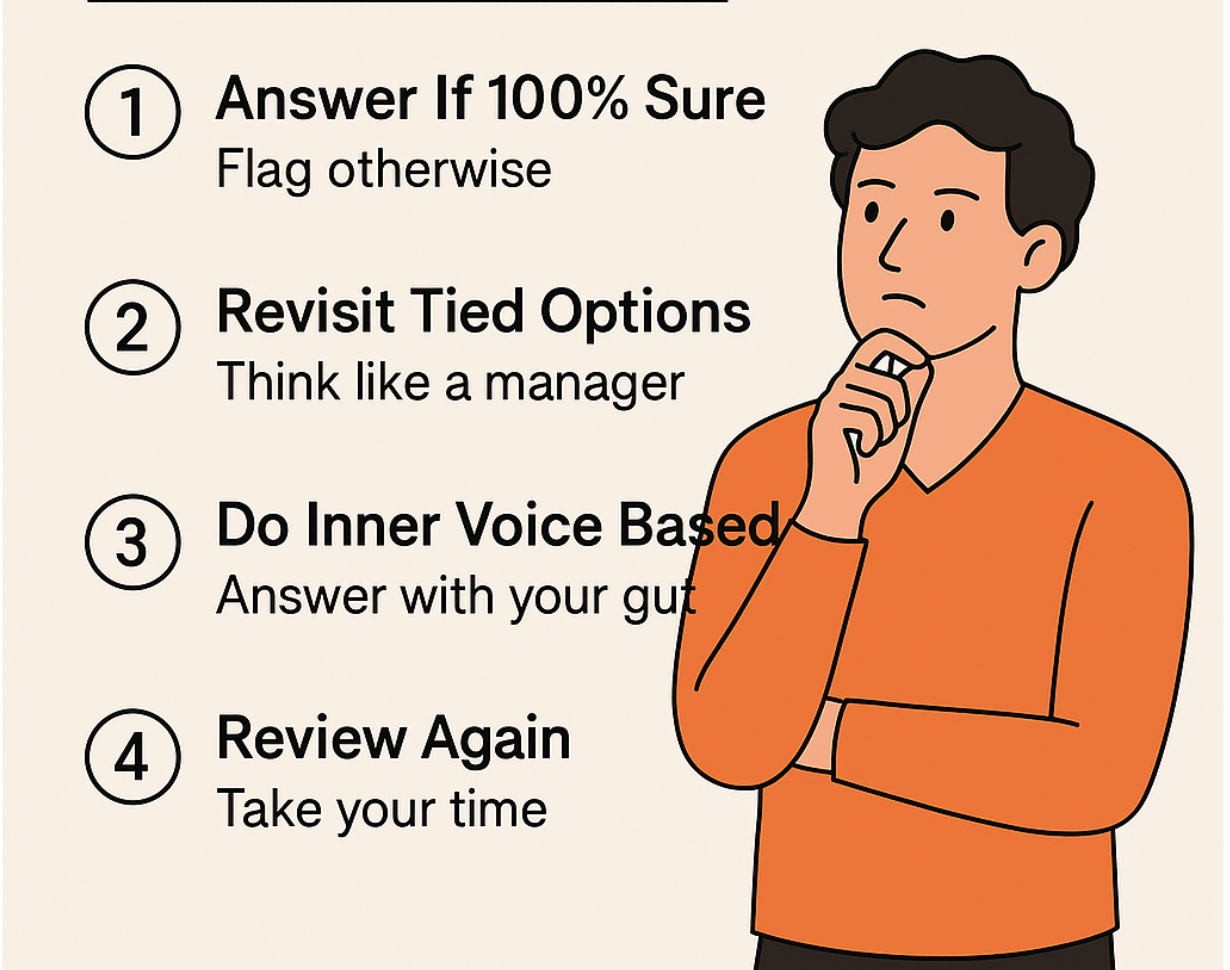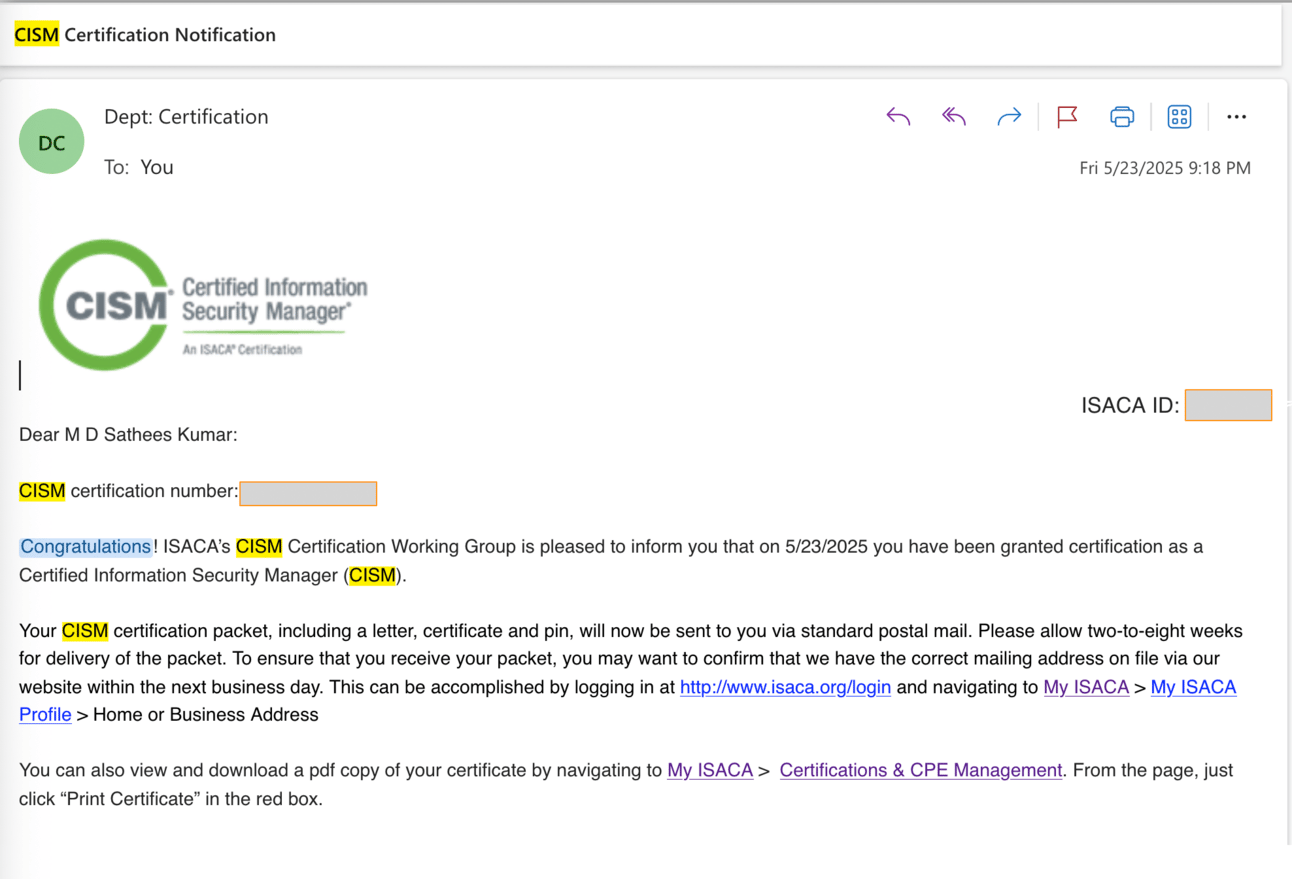- GRCVector
- Posts
- How to Pass the CISM Certification Without Any Formal Training (2025 Guide)
How to Pass the CISM Certification Without Any Formal Training (2025 Guide)
The brutally honest story of passing one of cybersecurity's most mind-bending exams

Table of Contents
Hey everyone,
Ever had that moment where you're staring at your computer screen, cursor hovering over the "cancel" button, knowing that clicking it would save you from potential public humiliation but also from a life-changing opportunity?
That was me. Two days before my CISM exam.
Let me tell you the raw, unfiltered truth about what it's really like to tackle the Certified Information Security Manager certification—and why I almost threw in the towel at the last minute.
The Brutal Reality Check
When I first committed to taking the CISM, I thought I knew what I was getting into. I was wrong. Dead wrong.
Here's what nobody tells you about this exam:
The cost will punch you in the gut. Between the $760 exam fee (if you're not an ISACA member), study materials, and the infamous Q&A Database that everyone swears by, you're looking at over $1,000 easily. For someone like me, that's not "just another certification expense"—that's rent money.
There's no clear starting point. You know how most certs have a nice, linear study path? CISM laughs at that concept. I spent weeks drowning in conflicting explanations of GRC concepts, jumping from document to document like a lost tourist in a foreign city.
The official study materials are painfully boring. I'm used to learning by doing—coding, testing, building stuff. But CISM is all about reading theoretical concepts and management documents. The official ISACA manual? I couldn't get through 10 pages without falling asleep. One frustrated Redditor summed it up: "The manual is useless... it's impossible to read and follow as it's so dry."
Your confidence will crater. Two weeks before the exam, I hadn't studied a single hour. Not one. I kept telling myself I'd start "tomorrow," but tomorrow kept becoming next week. The impostor syndrome was real.
The Mindset Shift That Changed Everything
Then, somewhere between panic and acceptance, something clicked.
I realized I'd been approaching this all wrong. CISM isn't a technical exam—it's a mindset exam. The certification test contains 150 questions completed within a maximum four-hour timeframe. ISACA uses a 200-800 point scale with 450 as the passing score. But here's the kicker: it's not about what you know, it's about how you think.
Imagine you're a risk-aware middle manager. You don't write code or configure firewalls. You influence decisions but don't make them. You speak business, not binary. Every question becomes: "What would a process-obsessed, risk-focused manager do?"
This realisation was my lifeline.
My Last-Minute Battle Plan
With time running out and motivation at an all-time low, I needed a strategy that actually worked:
Step 1: Ditch the Traditional Approach
Forget the thick manuals and boring PDFs. I started with video content to build my foundation without falling asleep:
CISM Masterclass Essentials for deeper understanding (Must-see video!)
CISM YouTube Playlist for quick concept overviews
How to read CISM exam questions - Check out Prabh Nair's YouTube videos on understanding ISACA question patterns
Step 2: The Learn-Practice-Repeat Cycle
My daily routine became obsessively simple:
Learn the concepts → Practice Q&A → Review wrong answers and why correct answer → Relearn → Repeat
I used PocketPrep for mobile quizzes ($20.99/month for 1000+ questions) and it was a game-changer. Being able to practice during commutes, lunch breaks, and random downtime kept the material fresh.
Step 3: Visual Learning (Because My Brain Needed It)
I created mind maps to see the connections between concepts. It sounds cheesy, but when you're dealing with abstract governance concepts, having a visual representation helps everything click together.
Mindmap Link: https://xmind.ai/share/9uY6Wl8e
Step 4: Embrace the ISACA Mindset
This is where the magic happens. The ISACA Q&A Database is expensive ($399), but it's worth every penny. As one Redditor noted: "Practice in the QAE Database helped me to understand it enough to pass."
Every practice question taught me to think like ISACA: business-first, process-driven, risk-obsessed.
Step 5: Exam Day
After considering the challenges of the online proctored exam—such as unstable internet, potential software issues, and the unpredictability of home environments—I opted for an in-person test center near my home. It offered a stable, secure, and distraction-free experience, which gave me peace of mind.
Once I arrived, an authorized staff member guided me through the login process. The screen lit up, and just like that, the 4-hour countdown began: 150 questions, one certification.
Thanks to all the interactive practice I’d done beforehand, I finished the first pass of all the questions in about 2.5 hours. But I didn’t hit submit. I knew better. That final stretch of time was for review—and that’s where the magic happened.
Here’s the approach I followed to keep my head clear and my strategy sharp:
Round 1: Answer with Certainty
If I was 100% sure of the answer, I selected it.
If there was any doubt, I flagged the question and moved on.
This helped me build momentum and avoid getting stuck.
Round 2: Think Like a Manager
I revisited flagged questions and focused on choosing the best management-level answer.
If I was torn between two, I spent a little more time thinking about which option aligned with real-world leadership decisions.
Still unsure? I flagged it again.
Round 3: Trust Your Inner Voice
On the final pass, I faced my last few flags.
If logic didn’t give me the answer, I paused, reflected, and followed my intuition—my accumulated learning over months.

Round 4: Final Review
With about 10 minutes left, I gave the entire set one last scan—not to second-guess myself, but to catch anything obviously missed. The review process gave me confidence.
Then came the moment. I submitted the exam.
The screen didn’t show a score, just a single word: Pass.
That was enough for the day. The official results would arrive in two weeks—but that one word? It was the validation I’d worked for.
When the final report did land in my inbox, I smiled quietly and said to myself:
“Woah… I did it.”

The Small Tactics That Made Big Differences
Looking back, these micro-strategies were clutch:
Set your exam date and stick to it. Waiting for the "perfect moment" is a trap. I would have kept pushing it back forever.
Master the elimination game. When stuck, I'd ask: "Which option best reflects ISACA's process-heavy, risk-based approach?" Usually, the most bureaucratic-sounding answer was correct.
Time your practice tests. Four hours is a mental marathon. I practiced under time pressure to build that stamina.
Join the r/CISM community. Real candidates sharing real experiences, no corporate fluff. The collective wisdom there is invaluable.
What I Actually Gained (Beyond the Certification Pass)
Passing wasn't just about adding "CISM" to my LinkedIn profile. It fundamentally changed how I think about security:
I started understanding GRC holistically, not just as "compliance stuff"
I developed skills in risk-focused communication that I use daily
I gained confidence in leadership conversations, not just technical execution
I learned to think strategically about security, not just tactically
The Resources That Actually Worked
Since time was my enemy, here's what actually moved the needle:
Must-Have Resources:
ISACA Q&A Database ($399 for non-members) - Expensive but essential for understanding their mindset
PocketPrep ($20.99/month) - 1000+ questions, perfect for mobile practice
Books that might help you (I didn’t study from them myself, but they’re often recommended):
CISM Exam Prep Guide by Hemang Doshi - Straightforward, no fluff (Redditors consistently recommend this as "the BEST study guide")
CISM Review Manual - Please use it for better topics related keyword search.
What to Avoid:
Trying to memorize everything - This isn't a trivia contest
Overthinking technical details - Remember, this is not a technical exam by any means
The Brutal Truth About Success
Here's what I wish someone had told me from the start:
You're probably more capable than you think. The exam is designed to be passable, even under pressure. The passing score is 450 points out of a total of 800 points, which means you need about 57% correct answers.
The exam is mind-bending, not impossible. It's less about knowing facts and more about understanding ISACA's worldview. Once you crack that code, everything else follows.
Imposter syndrome is part of the process. Every successful candidate I've talked to had moments of doubt. Push through them.
Your Turn: Ready to Commit?
If you're where I was—overwhelmed, uncertain, maybe even broke—here's my advice:
Set your exam date now. Don't wait until you feel "ready." You'll never feel ready.
Focus on the mindset, not the material. Think like a risk-aware manager, not a technical expert.
Invest in the Q&A Database. It's expensive, but it's the closest thing to a cheat code you'll find.
Join the community. r/CISM is full of people who've been exactly where you are.
The CISM journey isn't just about adding certification credentials to your name, it's about transforming how you think about security leadership. It's about moving from "How do I fix this?" to "How do I prevent this from happening again?"
And trust me, that shift in thinking is worth every stressful moment leading up to the exam.
Ready to get started? The certification is waiting, and you're more prepared than you think.
🤝 Let’s Connect!
Check out all my social platform links and connect with me → https://linktr.ee/md_sathees_kumar
If you found this blog helpful or if you're on your own CISM journey, I’d love to hear from you!
Feel free to connect with me on LinkedIn, mention this blog in your message so I know how you found me. Whether you're prepping for the exam, already certified, or just exploring the path to becoming a security leader, I always enjoy connecting with fellow professionals who are navigating this rewarding journey.
Found this helpful? Forward it to someone who needs to see it. We're all in this together.
P.S. Still on the fence? Remember: the regret of not trying lasts longer than the temporary discomfort of studying. Trust me on this one. Talk with me if you need guidance—I'm here to help.
Reply